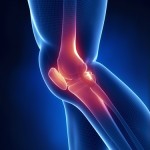Interoperability between EHRs needs improvement
One of the criterion for meaningful attestation is that health care providers must share electronic health records with one another. However, InformationWeek reported that members of the Senate Appropriations Committee are launching an investigation into whether EHR programs are preventing the exchange of patient records between health care organization that are not partners.
Furthermore, John Rising, director of medical devices at The Pew Charitable Trusts, recently sent a letter to Ron Wyden, D-Ore., and Chuck Grassley, R-Iowa., about how the lack of interoperability of EHRs is impacting the collection of information on patients. Rising wrote that registries need to develop different abilities in order to extract data from EHR systems at each facility or collect information through a manual process.
Fixing the problems
To combat interoperability issues, the Office of the National Coordinator for Health Information Technology released a 10-year plan that will result in the creation of an interoperable network of databases that support the sharing of information and provide an aggregation of information for patients, providers, researchers and the government. InformationWeek reported that this plan will focus on five strategies: the creation of core technical standards and functions, certifications supporting adoption of optimized health information technology, privacy and security, regulatory environments and rules of engagement and governance.
Why do EHRs need to be interoperable?
According to a study conducted by the Rand Corporation, there are many benefits to interoperability, but researchers stated that the lack of it is a barrier to EHR adoption.
The first benefit would be for payers and providers. If they can access EHR data with more ease, they could potentially use it to target reimbursements with more accuracy. Furthermore, providers will be able to study the effectiveness of medical treatments by comparing patient cases across the country. This coincides with the benefit that providers can find more value in their EHR systems. The programs can integrate with other medical devices and applications more easily. Physicians will be able to use their EHR systems more often and with more accuracy if devices immediately transfer statistics to the appropriate fields. They can have more face-to-face time with patients.
Patients will then see the benefits from interoperability. Physicians will be able to better identify trends with those who see multiple physicians. Data can be easily transferred between specialists, including medication information and past diagnoses, as well as chronic conditions and allergies. If interoperability becomes better, EHR systems can even be directly integrated with pharmacy systems and e-prescribing can become more popular.



